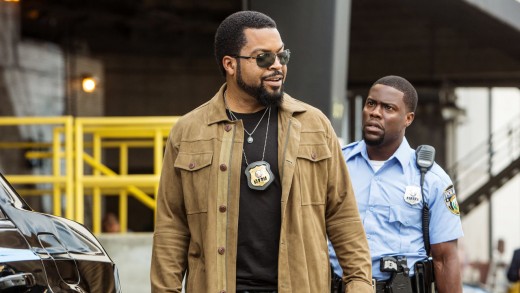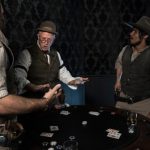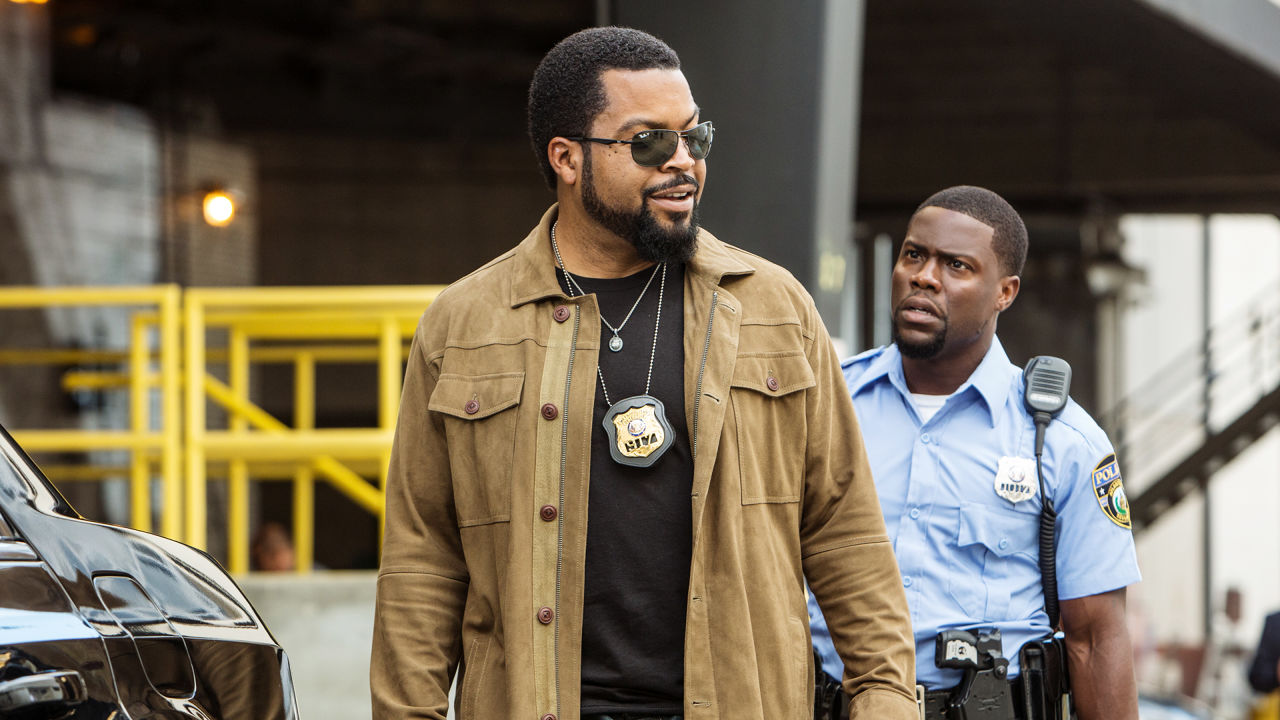Ice Cube On “Ride Along 2” And The Art Of Playing It Straight
In their new comedy, Ice Cube is decidedly the straight man to Kevin Hart’s antics. This is not as easy as it looks.
Ice Cube is a towering talent, working across multiple genres. Widely considered one of the greatest MCs of all time, he also wrote and starred in the 1995 classic Friday, launching a long and successful career as a film actor and producer. A line he uttered in that film has since attained meme-like immortality (and with the N.W.A. biopic Straight Outta Compton, a new level of self-referentiality).
In short, Ice Cube can do almost anything he wants, which is why it’s striking to see him allow scene after scene to be all but stolen from him in Ride Along 2, which opened Friday. Ice Cube is a star of the movie, to be sure, but he’s the first to admit that the Ride Along films are comedies, and that the comedian in the film is his costar Kevin Hart. Hart plays a rookie cop, Ben, who is soon to become the brother-in-law of Ice Cube’s character, James. In scene after funny scene, Hart vamps, whines, and maneuvers; he flees an alligator, falls off a boat, and generally serves as a comedic punching bag (and shooting target). And it’s all somehow made funnier by Ice Cube’s laconic exasperation.
In other words, Ice Cube’s James is what comedy calls a straight man. Fast Company caught up with the actor recently to learn more about his working relationship with Hart, what he looks for in a scene partner, and the art of playing it straight.
Fast Company: You and Kevin Hart had already worked together in the first Ride Along. What was different this time around?
Ice Cube: We knew our chemistry, so it made everything a lot smoother. We were basically jumping right back into something we had pretty much perfected the first time.
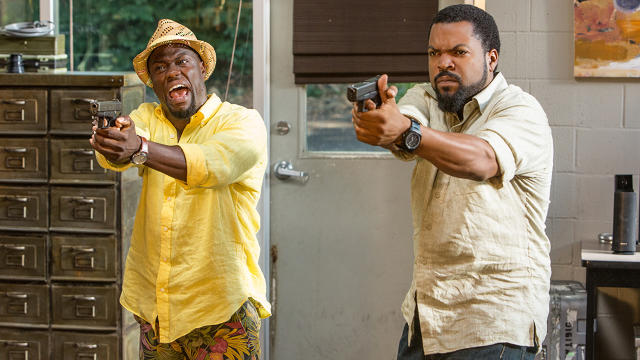
How did you and Kevin first find your way to a partnership that worked?
It worked immediately. It worked actually from the meeting we had with Universal when they were making their final decision on whether they wanted to do this movie or not. I think Kevin respects what I’ve accomplished in my music and movie career; I respect everything he’s accomplished in comedy, so there’s a mutual respect there that lets us work together without egos getting involved.
What do you look for in a creative partner?
I look for true talent. I look for someone who’s going to hold up their end of the bargain.
How do you see your character, James?
I just have to keep my character grounded in reality, no matter what Kevin does. I’m the straight man to what Kevin is doing. I think you’ve got to be a different kind of talent to hold the straight man role, and still be funny with it.
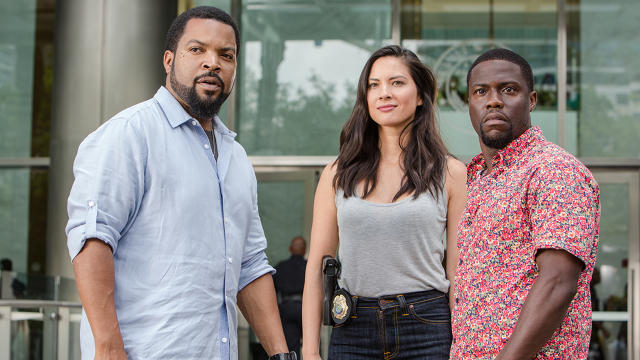
What’s the hardest thing about playing the straight man?
The hardest part is to hold your impulses for being funny, too. You can be sitting there and feel, “This guy who’s doing the comedy is really taking hold of the scene.” And if you’re not comfortable sometimes taking the backseat in a scene or two, you won’t be comfortable playing the straight man. But you’ve got to let the comedian take it to abstract places, and it’s really not your job to go there. It’s hard, because you want people to like your character in the movie, too. A lot of stars don’t like people to take over the scene. They end up doing a lot of bad movies, because they want to be the only one that’s good in the movie. I don’t work like that. I want everybody to shine.
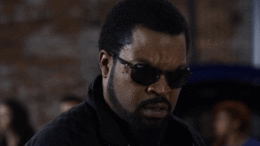
What’s the art to finding comedy in the straight man role?
The art is to see what the other actors do, and after they kind of map out their territory in the scene, to go back and find places to interject something off what they’re doing, without messing them up and looking like you’re trying to upstage somebody. I always equate it to a boxer looking for a jab. You’re not looking for a knockout blow, just a jab, to keep the audience on their toes. A straight man should always look for comedy, and a comedian should always look for places to be real.
Ride Along 2 obviously isn’t a very political film, but by playing a black police officer, did you want the film to speak at all to the tensions between police and the black community?
Not really. This is two hours to forget about all that stuff and just have fun with the situations. This is really not the kind of movie to have that kind of political undertone. I think you go see Ride Along to laugh and enjoy the ride. It’s really basically a guilty pleasure, more than anything.
This interview has been condensed and edited.
Fast Company , Read Full Story
(54)

